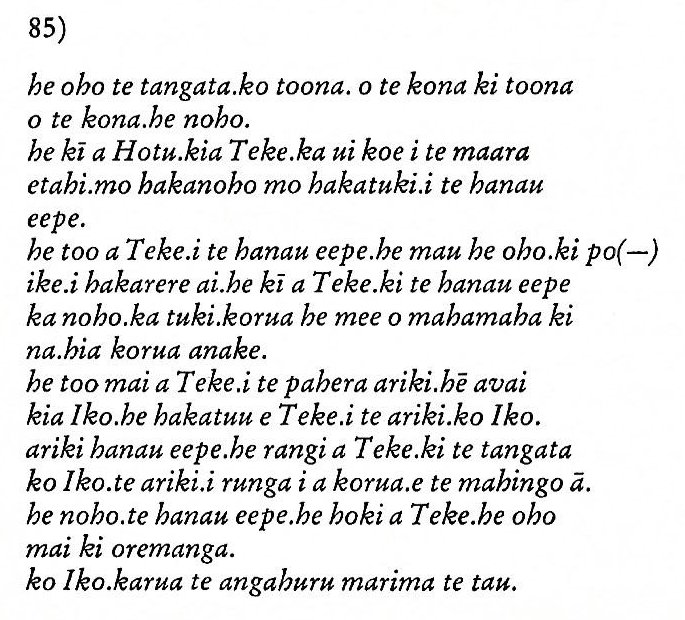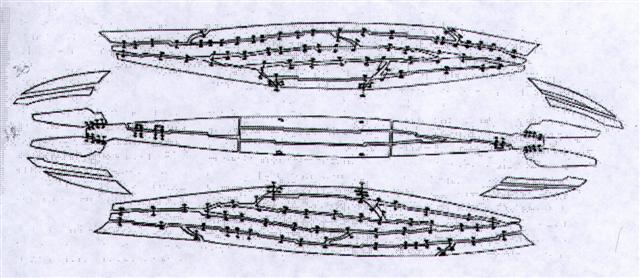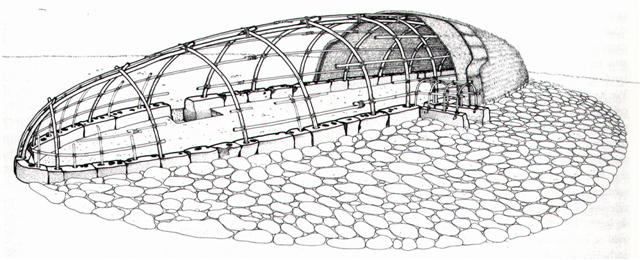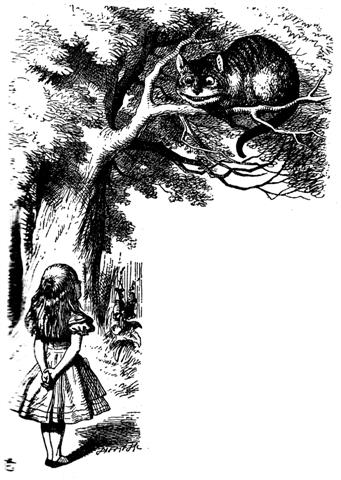
|
E:84 → Julian spring equinox ↔ Equinox at Antares
... Antares,
visible in the morning sky of
December-January, came to stand for
summer heat; hence the saying, 'Rehua
cooks (ripens) all fruit'. The
generally accepted version of the
Rehua myth, according to Best,
is that Rehua had two wives,
the stars on either side of Antares.
One was Ruhi-te-rangi or
Pekehawani, the personification
of summer languor (ruhi), the
other Whaka-onge-kai,
She-who-makes-food-scarce before the
new crops can be harvested
...
|
SIRIUS
Alkes
(JUNE 30)
*165 =
☼161
Rangi
Meamea |
JULY 4 (☼101) |
AUG 16
(☼144) |
SEPT 22
(☼181) |
|
Zosma / Coxa
*169 =
☼165 |
Thuban
*212 =
☼208 |
Antares
*249 =
☼245 |
|
Sept 6 (249) |
Oct 19 (292) |
Nov 25 (329) |
|
84 |
|
EQUINOX (84) |
180 |
EQUINOX (265) |
|
 |
 |
|
May 28 (148) |
Nov
25 (329) |

|
| i
oti era te kai te too mai ki uta.he
ki.te ariki |
After all the food supplies had been
brought on land [i
oti era te kai te too mai ki uta],
the two rulers [te
ariki arurua], the king
and the queen said, 'Drag the canoes
on land and take them apart (so the
wood can be used) to build houses
and cover the roofs!' |
|
arurua.te ariki tamaaroa.te ariki
tama(-) |
|
hahine
tokoa.kā toi
mai te miro.ki uta |
|
ka
titingi.mo
te hare mo ato. |
|
Toi.
Ta.: Alphitonia
zizyphoidea. Mq.: toi, a
climbing plant. Sa.: toi, a
tree. Churchill. Mq.: toitoi,
true, right, sincere. Ha.: koikoi,
substantial, honorable. Churchill.
... He cleared
the trunks of their branches and
bark, hewed them into shape, and
with strong fau ropes he and
his men drew them down the valley
over cliffs and ravines, seeming to
feel it merely light work. Thus King
Puna was robbed of his fine
aha-tea tree, his mara-uri
tree, a toi (Alphitonia)
tree, and a hauou (pua,
Fagraea) tree; and Hiro
spared not the trees sacred to the
gods around the marae. He cut
down a great tamanu (Callophylum),
stripped the trunk of its branches
and bark, split it up for planks for
the bows of his canoe, and trimmed
the branches for outriggers and
crossbeams. He cut down a most
sacred miro (Thespesia)
tree for planks for the after part
of his canoe, and he took two tall
straight breadfruit trees for planks
for the deck houses. Then he went
into the woods and cut down straight
fau trees (Hibiscus
tiliaceus) for paddles and for
floor planks, and three slim hutu
(Barringtonia) trees for
masts. After all this depredation,
Hiro and his men helped
themselves to wood and thatch and
reeds and all other material needed
for a shed in which to build the
canoe and for rollers to place under
it, King Puna not daring to
oppose them, as Hiro was too
powerful and dangerous to vex ...
KOI, v. Haw., to flow,
rush, like water over a dam;
koi-ei-ei, a rapid current;
koi-ele, to overflow. N. Zeal.,
toi, to dip in water, to
duck.Iaw., toya, water.
Sanskr., toya, water.
Apparently there is no etymon for
this word in Sanskrit or Vedic, for
Benfey suggests that it derives
'perhaps from tu.' But the
primary, at least the Vedic, meaning
of tu is 'to be
all-powerful'. Taking the New
Zealand term as the best-preserved
among the Polynesian dialects, it
certainly offers a better etymon to
the Sanskrit toya than the
Vedic tu. (Fornander)
... the progeny of Tu
increased: [1] Rongo, Tane,
Tangaroa, Rongomai,
Kahukura, Tiki, Uru,
Ngangana, Io,
Iorangi, Waiorangi,
Tahu, Moko, Maroro,
Wakehau, Tiki,
[17] Toi,
Rauru, Whatonga -
these were the sons ...
Ta.: toi, axe. Churchill.
Tiri. Mgv.: To throw
away, to reject, to neglect. Ta.:
tiri, to cast a small net. Mq.:
tii, titii, to throw
away, to abandon, to reject. Sa.:
tili, a small net and its cast.
Ma.: tiri, to throw one by
one. Titiri, to abandon, to
abjure; rima titiri, to walk
with the hands behind the back. T
Pau.: titiri, to abandon, to
leave, to abjure, to deny. Mgv.:
tiri, to throw away, to reject,
to neglect, to lose. Mq.: tií,
titií, to throw away, to
reject, to abandond, to leave
behind. Ta.: titiri, to
reject, to throw away. Churchill.
He mate te matu'a he ato
tepoki i te rîu o toona matu'a;
he-ariga ora o toona matu'a
[when] the father dies, [and] the
son sings a riu for his
father, this constitutes an ariga
ora of his father. Vanaga. |
|
he
totoi mai aruaru miro ki uta.he
titingi.he oti. |
They dragged the two canoes on land
and took them apart. |
|
Toto. 1. Blood;
he-gaaha te toto mai roto mai te
haoa, blood gushes from inside
the wound; toto hatukai,
coagulated blood. 2. Rust; to rust.
Vanaga. Blood, bloody, to let blood,
to make bloody, to bleed, to
dissolve, rust; ariga toto,
florid, ruddy complexion;
hakatehe ki te toto, to bleed;
toto pine, to bruise; toto
ohio, iron rust. Mgv., Mq.:
toto, blood. Ta.: toto,
blood, sap. Churchill. Totoro
= to crawl; ki totoro te poki,
when the baby crawls. Vanaga. |
|
te
titingi.he ato i te hare.e Nuku
kehu.anake(-) |
After they had finished
disassembling the canoes, Nuku
covered all the houses. |
|
anake.te hare. |
|

 |
|
he ki a
Teke.ki Oti.ka
tahunga koe i te hu- |
Teke says to Oti: 'Distribute [ka
tahunga] the
seedlings [te huri] among the people (mahingo)!' |
|
ri.ki
tou mahingo. |
|
Tahu. To assist. T Ma.:
tahutahu, to attend upon.
Tahuga, pair, to share out, to
put in order, to distribute.
Hakatahuga, to put in pairs, to
arrange. P (Metathetic from stem
tufa). Mgv.: tahua, a
collection of things properly
classified and kept in order. Mq.:
tauna, a couple. Churchill.
Pau.: tahua. 1. Field of
battle. Ta.: tahua, id. 2.
Floor. Ta.: tahua, id.
Tahuga, wise, capable, doctor,
artisan. Mgv.: tuhuga, wise,
instructed, adroit. Mq.: tuhuna,
wise, instructed, artisan. Sa.:
tufuga, carpenter. Ma.:
tohunga, adroit, wise, priest.
Tahutahu, sorcerer. Ta.:
tahu, sorcerer. Mgv.: tahu.
1. A tenant farmer. Ma.: tahu,
opulent, possessing property. 2. To
stir up a fire. Ta.: to build a
fire, to light. Mq.: tahu, to
light a fire. Sa.: tafu, id.
Ma.: to set on fire, to kindle, to
cook. Tahuna, a shallow,
shoal, bank. Mq.: tahuna,
beach gravel, shingle. Sa.:
tafuna, a rocky place in the
sea. Ma.: a shoal, a beach. Tohua,
a place of public assembly. Mq.:
tohua, public place, soil, land.
Mq.: tahuahi, the servant in
charge of the fire. Ha.: kahuahi,
id. Churchill. Ta.: tahuhu,
ridgepole. Ma.: tahuhu, id.
Mgv.: tohuhu, a ridgepole.
Mq.: tohuhu, ridge, roofing.
Churchill. Tahua, sloping
stone surface of ahu. Vanaga.
T.
Tahua, board, plank.
Tahu'a,
T. Priest, artist. OR. Tahua mimi,
bladder. Fischer. |
|
he too
mai.a Oti.he tahunga.i te huri.ki te |
Oti took the seedlings that had
been brought along and distributed
them among the people. He
distributed all kinds of [te huru
o] seedlings.
Everyone took his share of the
plants that had been brought along. |
|
tangata.anakeanake.te huru.o te
huri.i ta(-) |
|
hunga
ai.he too te tangata era.te tangata
era |
|
i taana
o te huri.i taana o te huri. |
|
he
rangi hokoou a Teke.ki toona
aniva.pe(-) |
Then [hokoou] Teke called out
[he rangi] to his
retainers (aniva), 'This is
[penei] what you are to do. Do not light the
earth-oven [ē.he meē o kāa.te umu]. The shadow (ata
[te āta])
of the king, the flame (ura)
of the king (may suffer harm) during
the night if shortly before an
earth-oven has been lit.' |
|
nei
ē.he meē o kāa.te
umu.te
āta.o te ariki. |
|
te
ura o
te ariki.i te po.ana ka iho.te umu. |
|
Umu.
Cooking pit, Polynesian
oven (shallow pit dug in the ground,
in which food is cooked over heated
stones); the food cooked in such a
pit for a meal, dinner, or banquet;
umu pae, permanent cooking
pit, in a stone enclosure.; umu
paepae, permanent cooking pit
with straw cover for protection from
rain and wind; umu keri okaoka,
temporary cooking pit without
stone enclosure; umu ava,
very large temporary cooking pit,
made for feasts; umu takapú,
exclusive banquet, reserved for
certain groups of persons, for
instance the relatives of a deceased
family member; umu tahu,
daily meals for hired workers;
umu parehaoga, inaugural banquet
(made on occasion of a communal
enterprise or feastival); umu
ra'e, banquet for fifth or sixth
month of pregnancy; umu pâpaku,
banquet on occasion of the death
of a family member. Vanaga. Cooking
place, oven (humu).
Churchill.
Samoa, Maori, Nukuoro, Niue, Tahiti,
Hawaii, Mangaia, Marquesas,
Mangareva, Paumoto: umu,
oven. Tonga: ngotoumu, id.
Uvea: ngutuùmu, id. Futuna:
ùmu-kai, id. Fotuna: amu,
cooking place. Rapanui:
umu, oven; humu hare,
cook house ... The Polynesian
radical is consistently umu.
Tonga and Uvea compound with it a
word which in Uvea is distinctly
ngutu mouth and in Tongan we may
feel that ngutu has been
specifically differentiated in this
composite. In the Futuna composite
the latter element is merely kai
food ... Particular interest
attaches to the discovery of the
amu type in Mabulag and Miriam,
western and eastern islands of the
straits and remote from the New
Guinea coast ... The existence of
amu in Fotuna affords us reason
to regard the type as ancient
Proto-Samoan, and that Mabulag and
Miriam received it directly and not
on secondary loan from Motu.
Churchill 2. Ura,
lobster. Ûra, flame, blaze (ûra
ahi), to become furious (with
manava as subject: ku-ûra-á
te manava). Úraúra,
bright red. Vanaga. 1. Crayfish,
lobster, prawn. P Mgv.: ura,
crayfish. Mq.: uá, lobster.
Ta.: oura, crayfish, lobster.
2. Fire, burning, to be in flames;
uraga, combustion, flame,
torch; hakaura, to cause to
glow, to kindle, to light. P Mgv.,
Ta.: ura, a flame, to burn.
Mq: uá, id. Uraga,
burden, load, weight. Uraura,
vermilion, scarlet. P Pau.:
kurakura, red. Mgv.: uraura,
an inflamed countenance. Mq.:
uáuá, red, ruddy. Ta.: uraura,
red. Churchill. Kura. 1.
Also: poukura, the short,
thin, multicoloured feathers of
chickens and other birds. 2. The
best of something, choice. Vanaga.
Tutui kura, shawl.
Kurakura, fair, light.
Hakakurakura, to make to blush.
P Pau.: kurakura, red,
violet. Mgv.: kurakura, red,
yellow, scarlet. Mq.: uáuá,
red, ruddy. Ta.: uraura, red.
Churchill.
Uá.
Ata uá, morning twilight.
Uáuá,
to reside; resident; noho uáuá
to settle somewhere; ina koe
ekó noho uáuá, do not establish
yourself there. Vanaga.
.jpg)
.jpg) |
|
E:85 |
|
he oho te tangata.ko toona. o te
kona ki toona |
Each man went [he
oho] to his place [ko
toona o te kona ki toona]
and lived there [o te kona he
noho]. |
|
o te kona.he noho. |
|
he
kī a Hotu.kia Teke.ka ui koe i te
maara |
Hotu said to Teke, 'Look around for
a suitable area (maara) to
settle the Hanau Eepe and let them
work the fields!' |
|
etahi.mo hakanoho mo
hakatuki.i te
hanau |
|
eepe. |
|
Tutuki: shock, contusion, to
run against, to collide; tukukia,
to run foul of. P Pau.: tukituki,
to strike, to pound, to grind. Mgv.:
tukia, to strike against,
shock, concussion. Mq.: tutuki,
id. Ta.: tui, id. Churchill.
... During his
descent the ancestor still possessed
the quality of a water spirit, and
his body, though preserving its
human appearance, owing to its being
that of a regenerated man, was
equipped with four flexible limbs
like serpents after the pattern of
the arms of the Great Nummo. The
ground was rapidly approaching. The
ancestor was still standing, his
arms in front of him and the hammer
and anvil hanging across his limbs.
The shock of his final impact on the
earth when he came to the end of the
rainbow, scattered in a cloud of
dust the animals, vegetables and men
disposed on the steps. When calm was
restored, the smith was still on the
roof, standing erect facing towards
the north, his tools still in the
same position. But in the shock of
landing the hammer and the anvil had
broken his arms and legs at the
level of elbows and knees, which he
did not have before. He thus
acquired the joints proper to the
new human form, which was to spread
over the earth and to devote itself
to toil ...
Maara. Flat coastal area
usable as landing stage. Vanaga.
Hakanoho, to abolish, to
rent, to lease, to enslave, to
dissuade, to exclude, to exempt, to
install, to substitute, hostage.
Hakanohohia,
stopped. Churchill. |
|
he
too a Teke.i te hanau eepe.he mau he
oho.ki po(-) |
Teke took command of the Hanau Eepe
and went with them to Poike. After
he had settled them there, Teke said
to the Hanau Eepe, 'Settle her,
work, and keep peace among
yourselves (he mee o mahamaha
kina); let this be the goal of
every one of you!' |
|
ike.i hakarere ai.he kī a Teke.ki te
hanau eepe |
|
ka
noho.ka tuki.korua he mee o mahamaha
ki |
|
na.hia korua anake. |
|
he too mai a Teke.i te
pahera ariki.hē
avai |
Then Teke assumed royal powers (pahera
ariki) and passed them on to
Iko. Teke installed the king; Iko
was (now) the king (ariki) of
the Hanau Eepe.
Teke called out to the men, 'Iko
is your king, oh people (mahingo)!'
The Hanu Eepe remained there.
Teke returned. (He) came to Oromanga
(name corrected; alternative
translation: Along came the adopted
rat, kiore ma(a)nga.). That
was Iko.
Twenty-five years. |
|
kia Iko.he
hakatuu e Teke.i te ariki.ko
Iko. |
|
ariki hanau eepe.he rangi a
Teke.ki te tangata |
|
ko Iko.te ariki.i runga i a
korua.e te mahingo ā. |
|
he noho.te hanau eepe.he hoki a
Teke.he oho |
|
mai ki oremanga. |
|
ko Iko.karua
te angahuru
marima te tau. |
|
Paka. 1. Dry; to become
dry (of things); pakapaka, to
dry out. Te paka is also the
name of the moss-covered areas,
between the small lakes of volcano
Rano Kau, through which one
can pass without getting one's feet
wet. 2. To go, to depart;
he-paka-mai, to come; he-oho,
he-paka, they go away. 3. To
become calm (of the sea):
ku-paka-á te tai. Pakahera,
skull, shell, cranium; pakahera
puoko tagata, human skull;
pakahera pikea, shell of crab or
crayfish. Gutu pakapaka,
scabbed lips. Hau paka,
fibres of the hauhau tree,
which were first soaked in water,
then dried to produce a strong
thread. Moa gao verapaka,
chicken with bald neck. Ariki
Paka, certain collateral
descendents of Hotu Matu'a,
who exercised religious functions.
Vanaga. 1. Crust, scab, scurf;
paka rerere, cancer; pakapaka,
crust, scabby. 2. Calm, still. 3.
Intensive; vera paka,
scorching hot; marego paka,
bald; nunu paka, thin. 4. To
arrive, to come. 5. To be eager. 6.
To absorb. 7. Shin T. Pakahera,
calabash, shell, jug. Pakahia,
to clot, curdle, coagulate.
Pakapaka, dry, arid, scorching
hot, cooked too much, a desert, to
fade away, to roast, a cake, active;
toto pakapaka, coagulated
blood; hakapakapaka, to dry,
to broil, to toast. Pakahera
pikea, shell of crab or
crayfish. Churchill.
... Up to the
present time, fertility spells for
fowls have played an important role.
Especially effective were the
so-called 'chicken skulls' (puoko
moa) - that is, the skulls of
dead chiefs, often marked by
incisions, that were considered a
source of mana. Their task is
explained as follows: 'The skulls of
the chiefs are for the chicken, so
that thousands may be born' (te
puoko ariki mo te moa, mo topa o te
piere) ... As long as the source
of mana is kept in the house, the
hens are impregnated (he rei te
moa i te uha), they lay eggs (he
ne'ine'i te uha i te mamari),
and the chicks are hatched (he
topa te maanga). After a period
of time, the beneficial skull has to
be removed, because otherwise the
hens become exhausted from laying
eggs ...

Hakatuu, to erect, to
establish, to inactivate, to form,
immobile, to set up, to raise.
Churchill.
...
The state of the
tree loomed large in their thoughts,
because it came about at the same
time the head of One Hunaphu was put
in the fork. The Xibalbans said
among themselves: 'No one is to pick
the fruit, nor is anyone to go
beneath the tree', they said. They
restricted themselves, all of
Xibalba held back. It isn't clear
which is the head of One Hunaphu;
now it's exactly the same as the
fruit of the tree. Calabash came to
be its name, and much was said about
it. A maiden heard about it, and
here we shall tell of her arrival.
And here is the account of a maiden,
the daughter of a lord named Blood
Gatherer. And this is when a maiden
heard of it, the daughter of a lord.
Blood Gatherer is the name of her
father, and Blood Moon is the name
of the maiden. And when he heard the
account of the fruit of the tree,
her father retold it. And she was
amazed at the account: I'm not
acquainted with that tree they talk
about. It's fruit is truly sweet!
they say, I hear, she said. Next,
she went all alone and arrived where
the tree stood. It stood at the
Place of Ball Game Sacrifice. What?
Well! What's the fruit of this tree?
Shouldn't this tree bear something
sweet? They shouldn't die, they
shouldn't be wasted. Should I pick
one? said the maiden.And then the
bone spoke; it was there in the fork
of the tree: Why do you want a mere
bone, a round thing in the branches
of a tree? said the head of One
Hunaphu when it spoke to the maiden.
You don't want it, she was told. I
do want it, said the maiden. Very
well. Stretch out your right hand
here, so I can see it, said the
bone.Yes, said the maiden. She
stretched out her right hand, up
there in front of the bone. And then
the bone spit out its saliva, which
landed squarely in the hand of the
maiden. And then she looked in her
hand, she inspected it right away,
but the bone's saliva wasn't in her
hand. It is just a sign I have given
you, my saliva, my spittle. This, my
head, has nothing on it - just bone,
nothing of meat. It's just the same
with the head of a great lord: it's
just the flesh that makes his face
look good. And when he dies, people
get frightened by his bones. After
that, his son is like his saliva,
his spittle, in his being, whether
it be the son of a lord or the son
of a craftsman, an orator.The father
does not disappear, but goes on
being fulfilled. Neither dimmed nor
destroyed is the face of a lord, a
warrior, craftsman, an orator.
Rather, he will leave his daughters
and sons. So it is that I have done
likewise through you. Now go up
there on the face of the earth; you
will not die. Keep the word. So be
it, said the head of One and Seven
Hunaphu - they were of one mind when
they did it ... |

|

